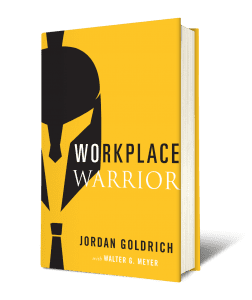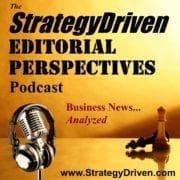Managing Your Warrior Spirit when Working at Home

So, believe me when I say I know how it feels to have others call you unflattering names when you believe you’re just trying to do your job or help them. (Isn’t it ironic that those who want you to be more respectful often end up calling you demeaning names?)
I also know that during this pandemic – as you’re forced to work remotely – that your “abrasive” personality may also be causing problems in your home life. Your family members may find your driven behavior less-than-endearing and it’s causing you some concern.
While you certainly don’t want to alienate those you care about and threaten important relationships, I also think you have great value in your home as a leader – as long as you’re willing to make some changes.
I know this because I’ve been in your shoes. I lost my job as a chief operations officer because, as I said earlier, I was seen as tactless and overly direct. That’s when I decided to change and became an executive coach and licensed clinical worker who helps other executives learn to drive results without damaging relationships. I’ve also become a better communicator in my own marriage.
Let me emphasize that I’m not asking you to change who you are or simply become a nicer person. In fact, your can-do attitude is just what is needed right now. You have something truly important, the ethos of the Navy SEALS: a “warrior spirit”. It’s your ability to focus on results in these volatile, uncertain, complex and ambiguous times that is so critically important right now.
What I am asking is that you become a better warrior.
In simple terms, you cannot continue to bully people, whether it’s in the workplace or at home. Your style must change. You must learn to harness your can-do spirit into something more positive.
The reason? Because people find your personality annoying, and that is damaging your important links to others and making you less effective.
A big piece of this disconnect between you and someone else is about cultural diversity. For example, I was raised in a New York City housing project that was built for World War II veterans. My family was loud, even by New York standards. Today, when I talk to people in New York, they think I’ve lost my edge. On the other hand, people in California think I’m too loud.
The point is that if you’re really annoying to some people because your personality is too loud or too direct, then they’re not going to recognize your value.
If you have a “warrior spirit,” you may also run into a disconnect with others when you don’t see them demonstrating values you find important: serving others, being the best and striving for success. When the people around you don’t perform or behave in ways that are consistent with your values, then you feel personally threatened. In other words, your abrasive behavior is actually a defensive response to feeling attacked.
Relationship rules
If we truly want to be effective leaders in the workplace or in our families, we need to understand that our job is to create connection and to help others take their performance to a higher level. There is a lot of contemporary research that says that work teams perform better when there is trust and people can be themselves. Surely this also applies to families.
With that in mind, here are some tips for managing your “warrior spirit” at home:
1. Understand that with love comes annoyance. When my wife was facing cancer surgery a couple of years ago, we found ourselves snapping at each other. That’s when we realized that we had moved out of the “denial” stage of her diagnosis and into the “anger” stage. We began talking about how we can drive each other nuts at times. We then came to the realization that when you find someone to love, you can make a choice at that time to be alone for the rest of your life – or annoyed for the rest of your life. Once my wife and I accepted that we’re going to annoy each other, our peace with one another grew. I believe this ability to accept annoyance applies to children as well.
2. Have compassion for everyone. When you have the “warrior spirit,” you must cultivate compassion for people whom your brain is telling you don’t deserve it. Compassion means recognizing that, just like you, other people are imperfect. It means recognizing that they are suffering or are in pain and want to do something to alleviate it. Still, compassion does not mean letting people escape the consequences of their behavior. Children raised in families where they were not held accountable do not become upstanding, responsible adults. Executives and managers who do not hold people accountable alienate high performers and lower team performance.
3. Negotiate a family charter. As a results-driven executive who is now working at home because of the pandemic, you are changing a number of often unspoken understandings about family roles and how the family operates. You need to recognize that you are invading the space of your spouse/partner and children. If you start giving directions, you are interfering with how they fulfill their roles and responsibilities. Perhaps more important, you are interfering with how they live their lives. Try holding a family council to define how things will be governed, just as they do in any successful family-owned business. Discuss things like purpose, vision, mission and value, as well as conflict resolution and communication. (Some family businesses require an outside facilitator to help them design and negotiate the charter. Consider you might need help if you can’t reach an agreement as a family.)
Your warrior spirit is especially valuable during these turbulent times, both in business and in your family. But it’s important you make adjustments so that you’re not running over the people you want to help instead of aiding their success and leading the way.
About the Author













Leave a Reply
Want to join the discussion?Feel free to contribute!